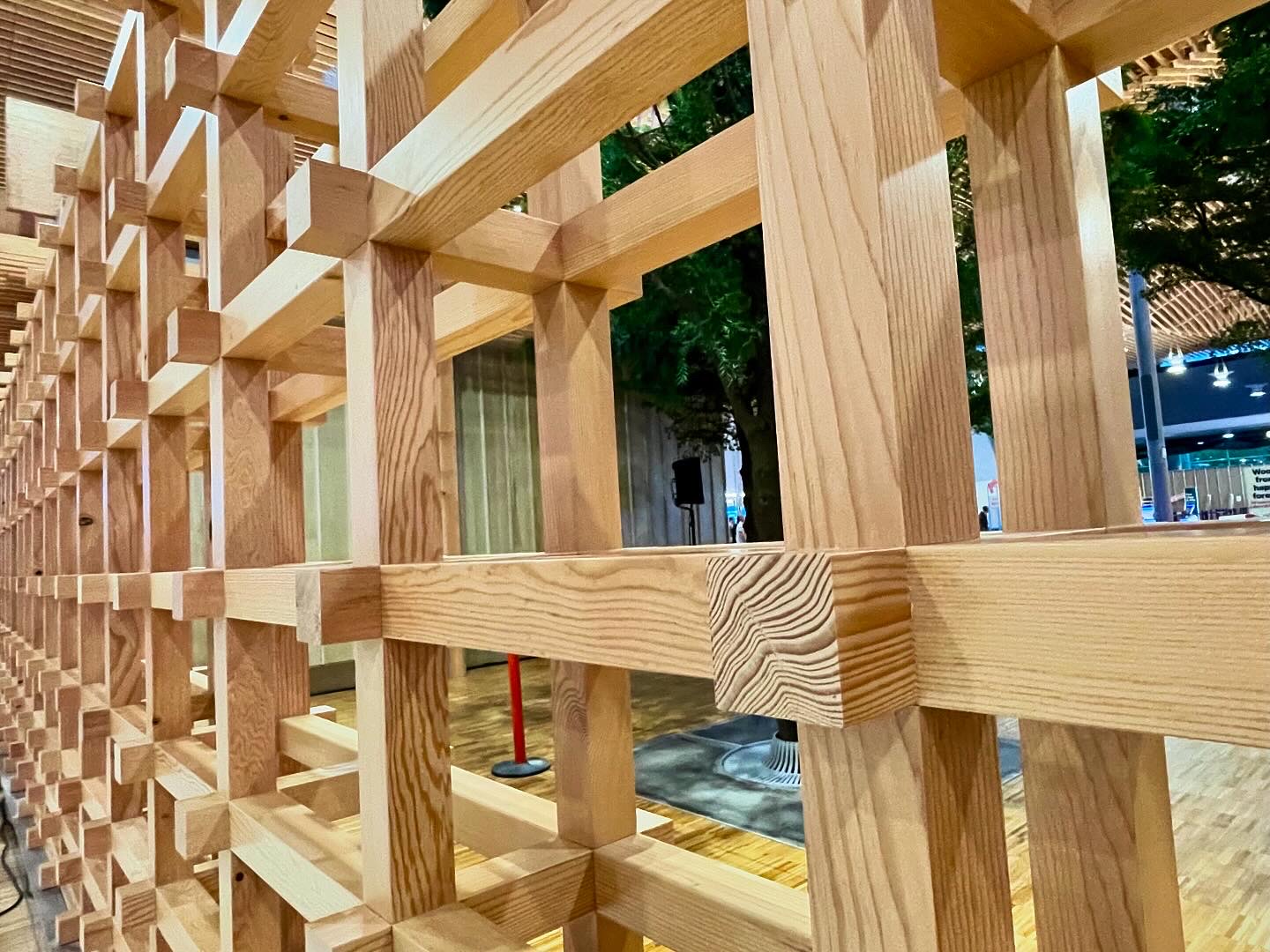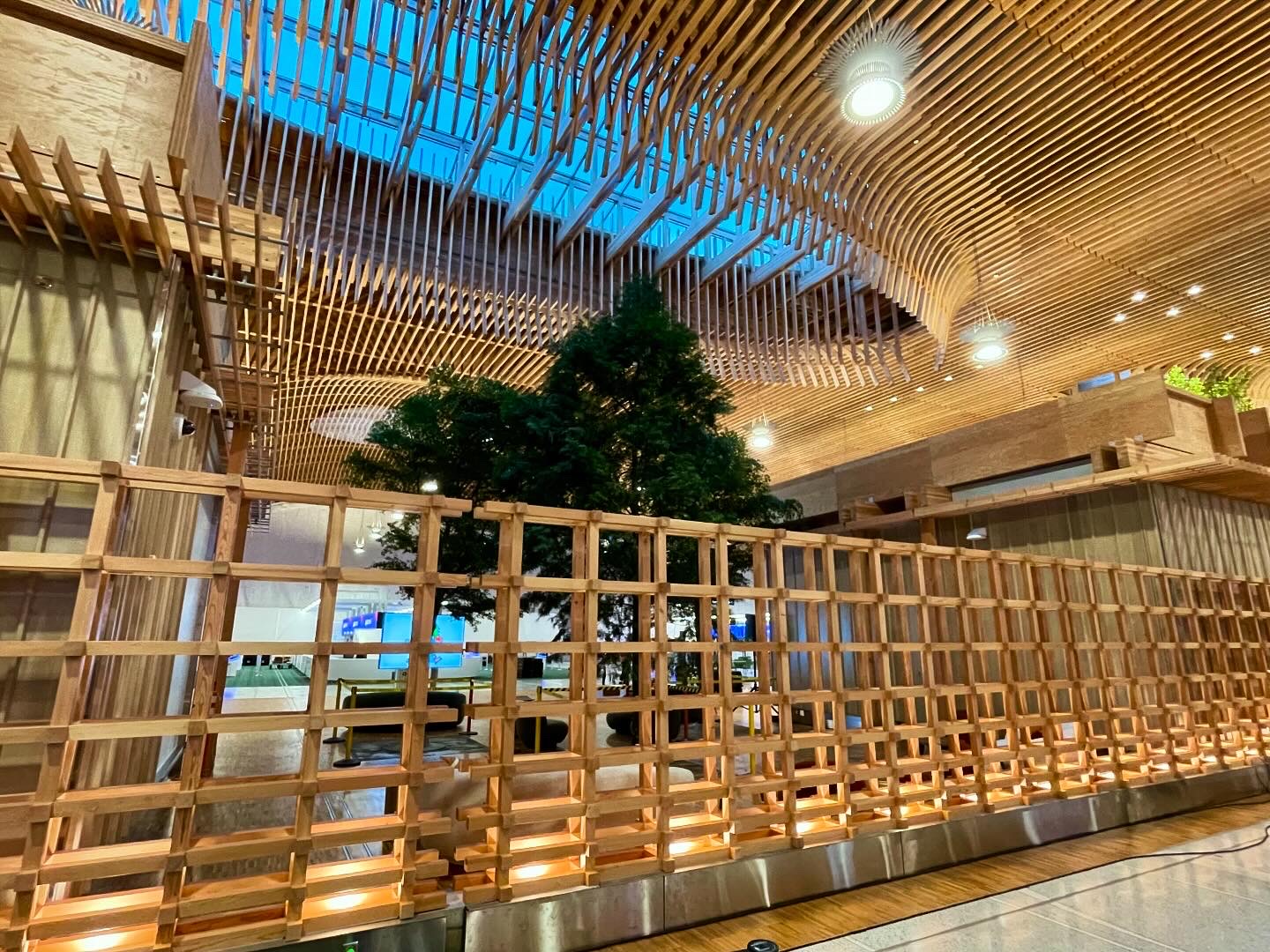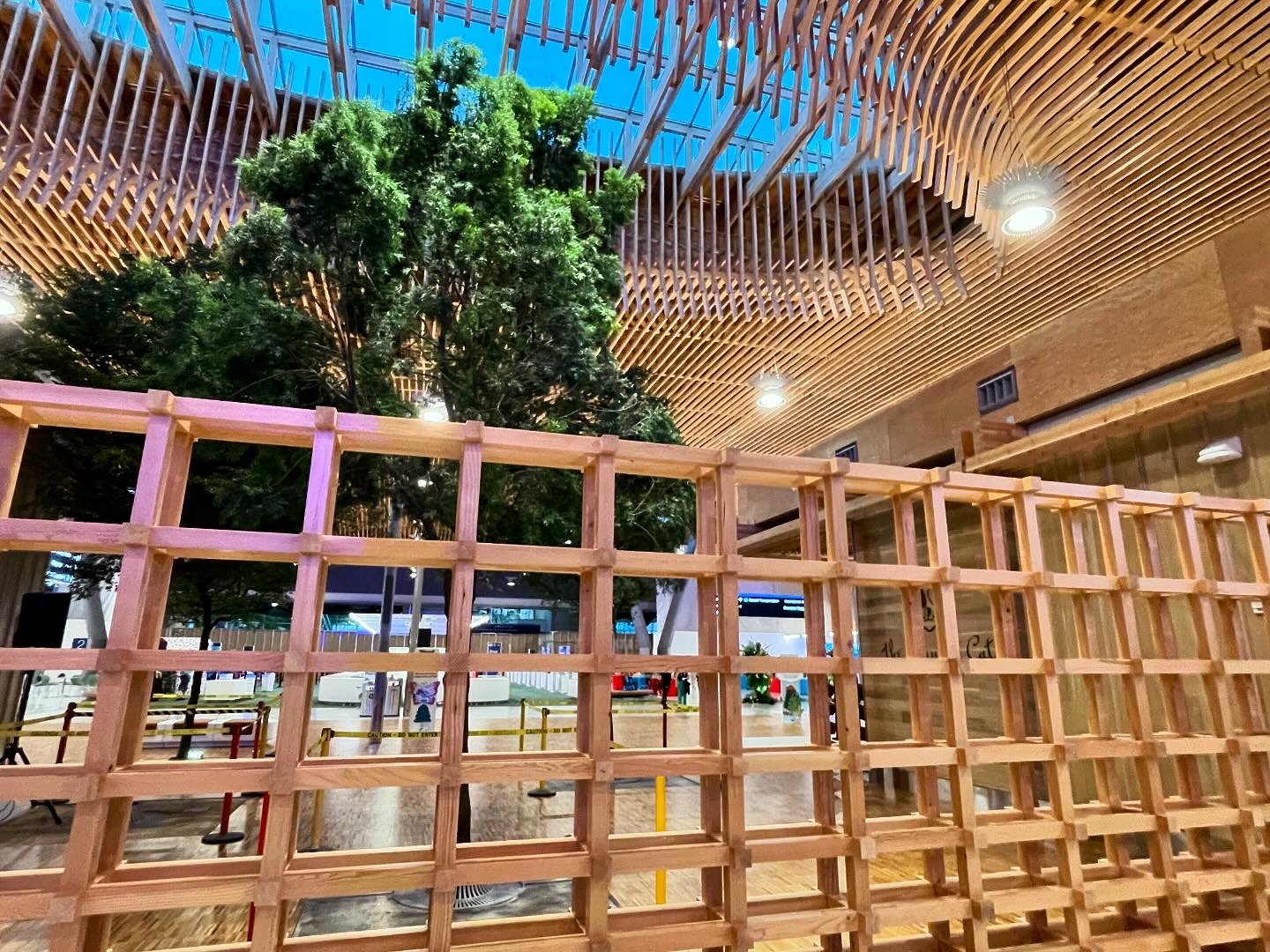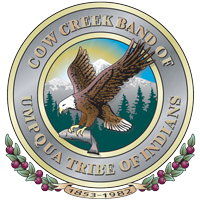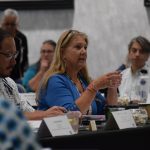Cow Creek Umpqua Tribal Timber Built Into PDX Remodel
ROSEBURG — Timber harvested from the lands of the Cow Creek Band of Umpqua Tribe of Indians will now be enjoyed by millions of travelers that pass through the newly remodeled Portland International Airport.
Cow Creek Umpqua timber was used to build large-scale decorative lattice walls, ceilings for retail spaces, and to line the inside of TSA privacy screening booths. The entire remodel, including the spectacular one-of-a-kind roof, incorporates locally sourced and sustainably managed timber.
“It is a great honor for the Cow Creek Umpqua Tribe and our Tribal people to make this contribution directly from our ancestral homelands,” said Tribal Chairman Carla Keene. “Natural resources, like our timber, are our most precious cultural resources. This is an achievement we will be able to show our children and grandchildren for generations.”
The Cow Creek Umpqua Tribe was invited to celebrate the grand opening of the PDX remodel on Monday, August 12, commemorating the thousands of local workers, tradespeople, artists, retailers, foresters and Pacific Northwest Tribes who made the project happen.
The Cow Creek Umpqua Tribe is one of four Northwest Tribes that supplied timber for the project, including Yakama Nation, the Skokomish Indian Tribe and the Coquille Indian Tribe.
“Seeing so much Indigenous recognition incorporated into this space is incredibly moving,” said Cow Creek Umpqua Tribal Government Chief Executive Officer Michael Rondeau. “When you walk in, it feels local and it feels cultural. The designers took a lot of care and respect to honor Oregon and Washington’s first people.”
The commitment to sustainability by the Port of Portland and ZGF Architects made the project happen, but for the Cow Creek Umpqua Tribe it was a spark that transformed their future and launched their partnership with the makers.
In 2018, Congress restored to the Cow Creek Band of Umpqua Tribe of Indians 17,000 acres of ancestral homelands. Just over a year later, the Milepost 97 wildfire near Canyonville destroyed 3,000 acres of those Tribal lands.
“We were devastated and wondered if we would be able to recover. But from the ashes, we transformed,” Keene told the crowd at Monday’s celebration event. “The Cow Creek Umpqua Tribe looked to the Indigenous knowledge of our ancestors, the Nahánkhuotana, and made a pledge to not waste what the land has given us.”
The Cow Creek Band of Umpqua Tribe of Indians chose to clean up the land, harvesting the burned timber. Some was processed into lumber for the PDX remodel, and some was turned into wood chips for playgrounds or landscaping projects.
The Milepost 97 wildfire, combined with Indigenous knowledge, has shaped a significant part of how Cow Creek Umpqua Tribal forests are managed going forward.
“Guided by our Tribal Board of Directors and enriched by the cultural and historical traditions passed down through Tribal families, we aim to integrate culturally prescribed burning into our forest management plan,” said Land and Resources Officer Jason Robison. “Cow Creek Umpqua people have used fire as a land management tool for centuries.”
“This is a fire culture, both historically and traditionally. We know that these forests and waterways cannot be healthy without healthy fire management. We strive to honor those Cow Creek Umpqua traditions and use a holistic approach to habitat restoration and forest resiliency,” said Director of Forestry Tim Vredenburg.
Tribal leadership now hopes that travelers to PDX will understand why Cow Creek Umpqua culture starts and ends with their forests and ancestral lands.
“For Indigenous people, Oregon’s Tribes, and Tribal sovereignty, it is significant and inspiring to be a part of this reimagined airport. Our ancestors would be so proud to know that we are sharing our culture and our forests beyond the next seven generations with everyone who passes through the airport,” said Tribal Government Chief Operations Officer Alicia McAuley.
Media Contact: Communications and Marketing Director Lindsay Campman, lcampman@cowcreek-nsn.gov, (541) 529-9159
